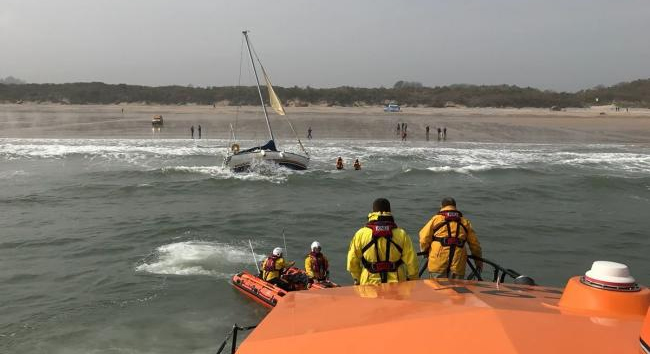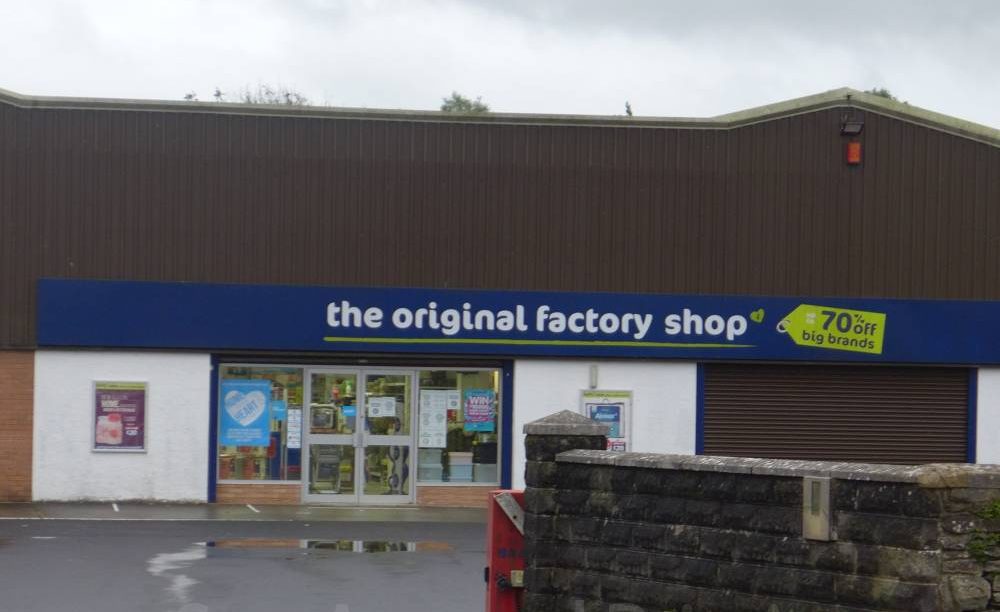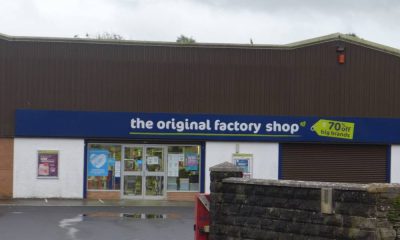News
Tenby yacht saved twice in twenty four hours

A YACHT had to be saved from waters around Tenby by the RNLI twice in twenty four hours.
Tenby’s relief RNLI all-weather lifeboat was requested to launch just after 2pm on Friday (Apr 13) after Milford Haven Coastguard received a call from a yacht in Carmarthen Bay to say they were taking on water.
After a brief search, the volunteer lifeboat crew located the casualty vessel about seven miles east of Tenby.
The lifeboat then went alongside the vessel, where the crew requested a tow to Tenby. Two lifeboat crew were put aboard the yacht, where its crew confirmed the bilge pump was broken.
Luckily, one of the lifeboat crew is also one of the station’s deputy mechanics and fixed the bilge pump whilst on the way back to Tenby. Once back in Tenby, the vessel was placed on one of the outside moorings, and the lifeboat then returned to station, arriving at 3.15pm.
Less than 24 hours later, Tenby’s RNLI inshore lifeboat was requested to launch following a report that a yacht had gone aground on Tenby’s Whiteback in thick fog and choppy seas.
Shortly after 1.30pm on Saturday (Apr 14), the lifeboat was on the scene, with the crew recognising the yacht as the same one the all-weather lifeboat had rescued the day before. Tenby Coastguard confirmed that the skipper of the yacht had been taken ashore by a windsurfer and was in their company on South Beach.
With the vessel well aground, the helmsman of the lifeboat made the decision to request the extra power of the all-weather lifeboat. The all-weather lifeboat was soon on scene.
The inshore lifeboat then took the tow rope and made it fast on the bow of the yacht. The vessel was then towed off the sandbank and around to Tenby harbour where it was put safely alongside the pier. The lifeboats then rehoused at 3.10pm.
Tenby’s Tamar class all-weather lifeboat is housed inside a modern slipway station situated on the north side of Castle Hill complete with a public gallery where visitors can watch the lifeboat launch.
The station’s D class inshore lifeboat is housed at Tenby Harbour.
Business
St Clears discount store in closing down sale after chain enters administration

A WELL-KNOWN discount retailer in St Clears is advertising a closing down sale after its parent company fell into administration, raising fresh concerns about the future of another high street store in west Wales.
The Original Factory Shop, which trades from Pentre Road in St Clears, has launched an “up to 30% off” sale as administrators attempt to secure the future of the business.
The chain, which sells clothing, homeware, garden products, toys and everyday essentials, appointed joint administrators Rick Harrison and James Clark of Interpath Advisory last week.
Founded in 1969, the retailer operates 137 stores across the UK and employs around 1,180 staff.
In a statement, Interpath said the company had faced difficult trading conditions common across the high street, including rising costs, weaker consumer spending and increased employment expenses. It added that problems with a third-party warehouse and logistics provider had also disrupted sales.
Despite the administration, the joint administrators say all stores will continue trading for now while options for the business are explored. The company’s online store is set to close.
Rick Harrison, managing director at Interpath and joint administrator, said the retailer had long been a fixture in town centres across the country but had struggled in the current climate.
Over the coming weeks, administrators will review whether parts of the business can be sold or restructured.
However, signage and social media posts from the St Clears branch suggest uncertainty locally, with the store promoting a closing down sale and urging shoppers to “grab a bargain while stocks last”.
The St Clears outlet is one of the last remaining branches in west Wales. Stores in Fishguard, Haverfordwest and Milford Haven closed last year. The Cardigan branch is also understood to be running a similar clearance sale.
The loss of another discount retailer would mark a further blow for smaller town centres already facing reduced footfall and rising costs.
Crime
Dorset man stopped at Fishguard ferry given domestic violence order

Magistrates told of 13 prior incidents as protection order imposed
A DORSET man was stopped by police at Fishguard Harbour while attempting to travel to Ireland and has now been made subject to a Domestic Violence Protection Order.
Nathaniel Cruickshank, aged 22, of Gillingham, appeared before Haverfordwest Magistrates’ Court on Monday (Feb 2).
The court heard he had travelled to Pembrokeshire on January 30 and was intercepted at the ferry port while planning to board a sailing to Ireland with his partner, prompting police intervention.
Magistrates were told Cruickshank has a lengthy history of domestic violence and abusive behaviour, with officers having attended 13 separate incidents involving him.
Prosecutors outlined a number of previous allegations, including an incident in which he punched his mother in the face and another where he smashed a family television with a guitar after being refused money.
The court also heard that on January 29 a protected person attended their GP surgery expressing fear of him, triggering safeguarding measures.
Police subsequently served a Domestic Violence Protection Notice, and Cruickshank was later arrested at Fishguard.
Magistrates granted a 28-day Domestic Violence Protection Order preventing him from threatening or using violence, making any direct or indirect contact with the protected person, or returning to her address.
Issuing a warning in court, magistrates told him any breach would have serious consequences.
Cruickshank was ordered to pay £284 in costs to Dyfed-Powys Police.
international news
Data watchdog probes Musk’s AI firms over deepfake fears

Investigation launched into Grok chatbot after reports of explicit images created using people’s likeness without consent
THE UK’s data protection regulator has opened formal investigations into X and artificial intelligence company xAI amid growing concerns that their chatbot Grok may have been used to create sexualised “deepfake” images without people’s knowledge.
The action has been taken by the Information Commissioner’s Office, which enforces Britain’s data protection laws, following complaints that the AI tool could generate intimate or explicit images using real individuals’ faces or personal data.
Such images, often referred to as deepfakes, are digitally altered or AI-generated pictures that make it appear someone has posed for photographs or videos they never took.
Regulators fear the technology could be exploited for harassment, blackmail or abuse.
The probe follows a separate investigation by Ofcom, which began examining the platform earlier this year over wider online safety concerns.
Mounting pressure
Both investigations come amid mounting scrutiny of services linked to tech billionaire Elon Musk, whose companies have rapidly expanded the use of generative AI tools capable of producing realistic text and images in seconds.
While such tools are marketed for creative and commercial use, campaigners say safeguards have not kept pace with the risks.
Privacy experts warn that if AI systems are trained on, or can access, personal images or data without clear consent, they may breach UK data protection law.
The ICO said it is now examining how Grok was built, what data may have been used in its development, and whether sufficient protections were put in place to stop misuse.
William Malcolm, the watchdog’s executive director for regulatory risk and innovation, said reports surrounding the chatbot were “deeply troubling”.
He said losing control of personal information in this way could cause “immediate and significant harm”, particularly where children or vulnerable people are targeted.
Safeguards questioned
Investigators will look at whether the companies properly assessed risks, limited the use of personal data and introduced effective barriers to prevent the creation of explicit or abusive content.
Under UK law, organisations found to have mishandled personal data can face enforcement action, including large fines or orders to change how their systems operate.
The ICO confirmed it is working closely with Ofcom and overseas regulators as concerns about AI-generated content increasingly cross international borders.
In response to criticism, X has said it has introduced additional moderation tools and technical measures aimed at preventing the creation of harmful or non-consensual images.
However, regulators say they will continue to examine whether those steps go far enough.
The ICO said it would take action if it finds that legal obligations have not been met.
-

 Health5 days ago
Health5 days agoConsultation reveals lack of public trust in health board
-

 News6 days ago
News6 days agoCaldey still unsafe, survivors warn — despite Abbey’s reform claims
-

 Community6 days ago
Community6 days agoPembrokeshire students speak at national Holocaust Memorial Day event
-

 News2 hours ago
News2 hours agoPrincess of Wales visits historic Pembrokeshire woollen mill
-

 News6 days ago
News6 days agoKurtz raises Gumfreston flooding in the Senedd as petition deadline nears
-

 Crime7 days ago
Crime7 days agoMan denies murdering brother as jury hears of ‘ferocious attack’ at Morriston flat
-

 Crime4 days ago
Crime4 days agoPembroke man accused of child sex offences sent to Swansea Crown Court
-

 Education6 days ago
Education6 days agoAttendance concerns at Milford School reflect wider issue raised at the Senedd
































